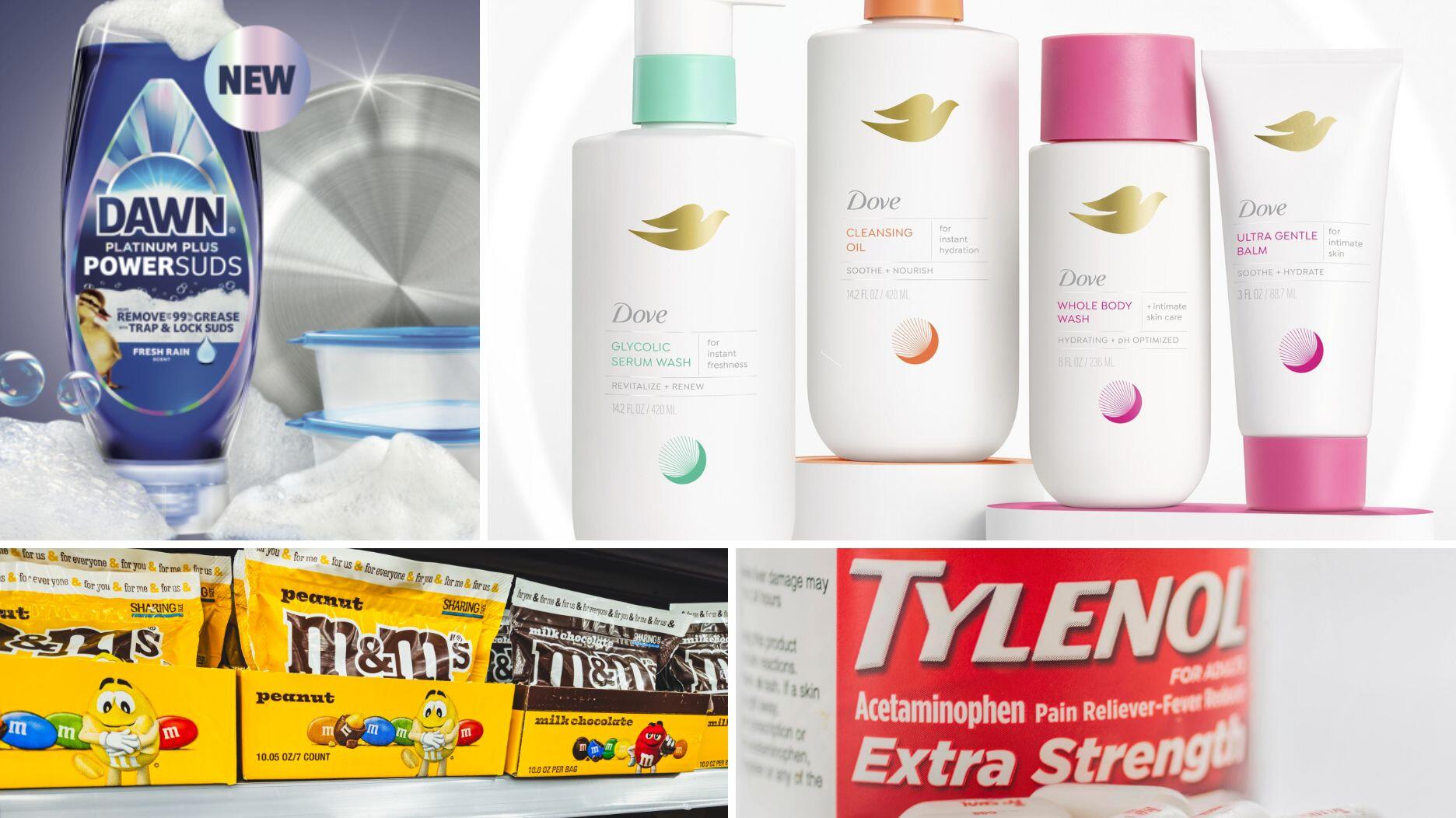Consumer Confidence Slips in June Amid Rising Prices
The costs of food and groceries remained a top concern, followed by the labor market and U.S. politics.

The Conference Board’s consumer confidence index fell to 100.4 in June from a downwardly revised 101.3 in May.
Similar to last month, June’s write-in responses showed high prices, especially for food and groceries, continued to impact consumers’ views of the economy, followed by the labor market and U.S. politics.
“Consumers expressed mixed feelings this month: their view of the present situation improved slightly overall, driven by an uptick in sentiment about the current labor market, but their assessment of current business conditions cooled,” said Dana M. Peterson, chief economist at The Conference Board.
“Meanwhile, for the second month in a row, consumers were a bit less pessimistic about future labor market conditions. However, their expectations for both future income and business conditions weakened, weighing down the overall Expectations Index."
As for election season, the share of respondents who said the 2024 election would impact the economy was low in comparison to write-ins in June 2016 and slightly higher than in 2020.
“Confidence pulled back in June but remained within the same narrow range that’s held throughout the past two years, as strength in current labor market views continued to outweigh concerns about the future,” said Peterson.
“However, if material weaknesses in the labor market appear, confidence could weaken as the year progresses.”
The decline in confidence from May to June was attributed mainly to consumers aged 35 to 54.
Those under 35 and those 55 and older saw an improvement, though there was no clear pattern according to income groups, said Peterson.
On a six-month moving average basis, confidence continued to be highest among the youngest and wealthiest consumers, it found, including those under 35 and those making more than $100,000.
The average 12-month inflation expectations declined slightly to 5.3 percent from 5.4 percent in May.
The Present Situation Index, which measures consumers’ current view of business and labor market conditions, rose to 141.5 in June from 140.8 in May.
Consumers’ view of current business conditions was less optimistic in June, with the percentage of respondents who said current business conditions are “good” down to 20 percent from 21 percent in May, while those who said conditions are “bad” was flat at 18 percent.
Consumers’ view of the labor market improved in June, with those who said jobs were “plentiful” up to 38 percent from 37 percent in May, while those who said jobs were “hard to get” was flat at 14 percent.
The Expectations Index, which measures consumers’ outlook for income, business, and labor market conditions in the near future, fell to 73 from 74.9 in May.
Notably, an Expectations Index reading below 80 often signals a recession ahead, said the Conference Board. It has been below 80 for five consecutive months.
Consumers’ view of the short-term business conditions outlook was more pessimistic in June.
The percentage of respondents who expect business conditions to improve was down to 13 percent from 14 percent, while those who expect conditions to worsen was unchanged at 17 percent.
Consumers’ assessment of the short-term labor market outlook in June was slightly more positive.
The percentage of respondents who expect more jobs to be available was flat at 13 percent, while the number of respondents who expect fewer jobs to be available was down to 17 percent from 19 percent.
Consumers’ assessment of their short-term income prospects was more negative.
The number of respondents who expect their incomes to increase was down to 15 percent from 18 percent in May, while those who expect their incomes to decrease was flat at 12 percent.
Consumers were also less optimistic about their family’s current financial situation, a measure not included when calculating the Present Situation and Expectations Index.
Their view of their family’s future financial situation was unchanged.
The “Consumers’ Perceived Likelihood of a U.S. Recession Over the Next 12 Months” declined in June after rising in April and May.
Consumers were optimistic about the stock market, however, with 48 percent expecting stock prices to increase over the year ahead, 24 percent expecting a decrease, and 28 percent expecting no change.
The number of consumers expecting higher interest rates over the next twelve months dropped to 53 percent, its lowest level since February.
Purchasing plans for homes were unchanged in June and remained historically low, said the Conference Board. Plans to buy cars were also at a standstill.
Buying plans for most big-ticket appliances and smartphones were up slightly, while fewer planned to buy a laptop or PC.
The number of respondents planning a vacation over the next six months continued to increase, staying above June 2023 levels.
Notably, more people plan to travel by car than by plane.
The number of consumers planning to go on vacation is about 10 percentage points lower than it was pre-pandemic.
The Latest

In a 6-3 ruling, the court said the president exceeded his authority when imposing sweeping tariffs under IEEPA.

Smith encourages salespeople to ask customers questions that elicit the release of oxytocin, the brain’s “feel-good” chemical.
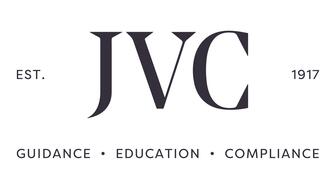
JVC also announced the election of five new board members.
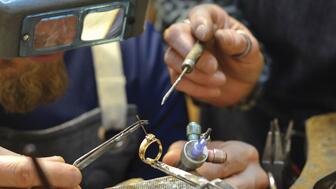
Launched in 2023, the program will help the passing of knowledge between generations and alleviate the shortage of bench jewelers.

The brooch, our Piece of the Week, shows the chromatic spectrum through a holographic coating on rock crystal.


Raised in an orphanage, Bailey was 18 when she met her husband, Clyde. They opened their North Carolina jewelry store in 1948.

Material Good is celebrating its 10th anniversary as it opens its new store in the Back Bay neighborhood of Boston.

Criminals are using cell jammers to disable alarms, but new technology like JamAlert™ can stop them.

The show will be held March 26-30 at the Miami Beach Convention Center.

The estate of the model, philanthropist, and ex-wife of Johnny Carson has signed statement jewels up for sale at John Moran Auctioneers.

Are arm bands poised to make a comeback? Has red-carpet jewelry become boring? Find out on the second episode of the “My Next Question” podcast.

It will lead distribution in North America for Graziella Braccialini's new gold pieces, which it said are 50 percent lighter.
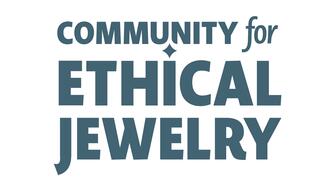
The organization is seeking a new executive director to lead it into its next phase of strategic growth and industry influence.
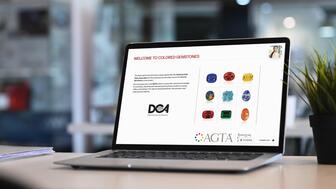
The nonprofit will present a live, two-hour introductory course on building confidence when selling colored gemstones.

Western wear continues to trend in the Year of the Fire Horse and along with it, horse and horseshoe motifs in jewelry.
![A peridot [left] and sapphires from Tanzania from Anza Gems, a wholesaler that partners with artisanal mining communities in East Africa Anza gems](https://uploads.nationaljeweler.com/uploads/cdd3962e9427ff45f69b31e06baf830d.jpg)
Although the market is robust, tariffs and precious metal prices are impacting the industry, Stuart Robertson and Brecken Branstrator said.

Rossman, who advised GIA for more than 50 years, is remembered for his passion and dedication to the field of gemology.

Guthrie, the mother of “Today” show host Savannah Guthrie, was abducted just as the Tucson gem shows were starting.

Butterfield Jewelers in Albuquerque, New Mexico, is preparing to close as members of the Butterfield family head into retirement.
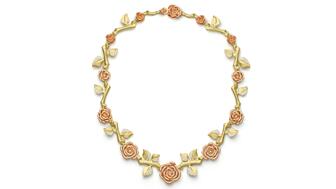
Paul Morelli’s “Rosebud” necklace, our Piece of the Week, uses 18-karat rose, green, and white gold to turn the symbol of love into jewelry.

The nonprofit has welcomed four new grantees for 2026.

Parent company Saks Global is also closing nearly all Saks Off 5th locations, a Neiman Marcus store, and 14 personal styling suites.

It is believed the 24-karat heart-shaped enameled pendant was made for an event marking the betrothal of Princess Mary in 1518.

The AGTA Spectrum and Cutting Edge “Buyer’s Choice” award winners were announced at the Spectrum Awards Gala last week.

The “Kering Generation Award x Jewelry” returns for its second year with “Second Chance, First Choice” as its theme.

Sourced by For Future Reference Vintage, the yellow gold ring has a round center stone surrounded by step-cut sapphires.
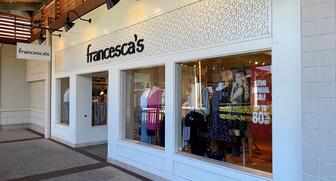
The clothing and accessories chain announced last month it would be closing all of its stores.
















